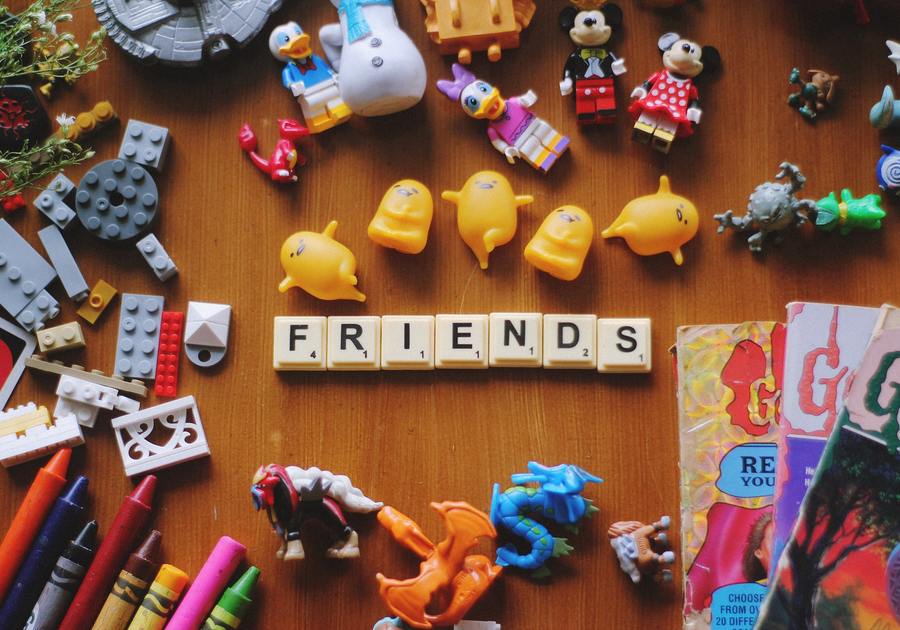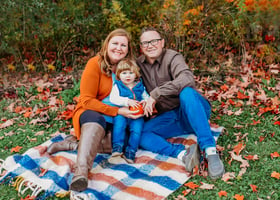GET YOUR CHILD READY FOR SCHOOL WITH SOCIAL LANGUAGE SKILLS:
How to make friends.
By Roxane Bélanger, M.O.A., SLP-C, Reg. CALSPO
Speech Language Pathologist,
First Words Preschool Speech and Language Program of Ottawa and Renfrew County
Whether it is September or any other month of the year, you can get your child ready for daycare or school by teaching them basic social skills grounded in language. Language and social thinking skills are crucial to a child’s success in building strong relationships with others, especially when you are going back to daycare or school after a pandemic year with limited social opportunities and virtual schooling.
Whether your child has strong language skills, is learning more than one language or has a communication delay, all children will struggle to some extent with the back to daycare and school routine. Often, children, just like adults, feel stressed, nervous or shy when it comes to the first day at daycare or at school. That is totally normal. As parents, we want our children to thrive at daycare or school entry.
What social skills should I work on?
You can help your children get ready for daycare or school by teaching them how to use their language and social skills. Start, at any age, by modelling and targeting easy social language skills such as these ones. Get your child to:
- Introduce themselves: “Hi my name is ____. What is your name?”
- Answer personal questions: “What’s your name? How old are you? What is the name of your parent? Who is your teacher ?”
- Ask and answer simple questions: “What’s your name? Do you want to play with me?”
- Ask for help: “Can you help me?” or “Help me please”
- Invite another child to play together and be friends.
- Practice sharing toys.
- Practice apologizing (Accidents happen!)
How do I help my child practice these social language skills?
Here are a few tips to set the stage for any social language skill:
- Choose a social skill that you want to practice with your child. Whether it is greeting a new adult at daycare or school, asking for help or making friends, it is best to practice a few days or weeks before school starts. Social language skills are like any other skills: it needs time and practice. You can even start any of those skills at a younger age; you don’t need to wait until they start daycare or school.
- Map it out with pictures or a social story (see picture). Social stories are good tools to use with children. Social stories often have lots of visuals/pictures and repetitive language. Social stories are built to set the stage and help your child to learn the words and the expected behaviours related to a precise social situation or skills. Social stories can be used to work on just about any social skills such as how to introduce yourself, wait in line, or ask a friend to play.
- Use role-playing as a fun and relaxed way to practice a social skill. Practice with another parent, a neighbour, a grand-parent or another older sibling/friend how to introduce themselves, apologize, ask to play, etc… Kids love to pretend. They are learning while playing.
SOCIAL SKILL OF THE WEEK: HOW to make friends with other children.
To help them rock their first week back to school, teach them and role-play one very important social language skill: HOW your child can make friends.
Making friends and establishing friendships are essential aspects of your kid’s life, especially in daycare or school. In fact, a true friendship can feel magical and it can make any situation so much better. To get your child comfortable with making new friends, use the tips above (social stories, role-playing) when you teach them the steps.
Here is one scenario on the HOW-TO make friends. Tell your child to:
- Walk into the class (or play area). Spot another child that they want to be friends with.
- Smile and walk up to that friend.
- Introduce yourself: “Hi my name is _______. What is your name?”
- Wait and listen. Your child has to know that they need to give time to the other friend to respond and say their name. That child might be dealing with big feelings related to starting a new routine.
- Once the friend answers, your child can ask: “Do you want to play with me?”
- Wait some more. Waiting and listening are important skills – even in children.
- Talk about what would happen next if the child says “Yes” or “NO” (it is going to happen). Reassure them that it is okay if a friend declines their invitation to play. There are many reasons why this would happen. Maybe that friend is shy, missing their parent, unsure. Remind your child that it’s okay and perfectly normal. In reality, your child may also feel that way at different times and that is completely normal.
- If the answer is NO, your child should give this peer some space for now. They can try again later. REPEAT steps 1 to 7: Your child can go find another friendly face and try again. Smile, say your name, invite the other child to play, repeat. They get to do it all over again until they find a friend who wants to play. Kids want to make friends. It is more than likely that your child will find a buddy to play with very quickly.
Making friends is essential to children. It is a basic foundational skill needed for a healthy positive experience at daycare and school. Let’s help our kids be successful.
Masks on! Happy back-to-school period to all!
Recognizing speech and language problems early on is the best approach!
Check out our First Words Communication Checkup tool to know if your child is meeting communication milestones. Refer online if necessary. For more information, visit www.firstwords.ca or call Ottawa Public Health at (613) PARENTS.



